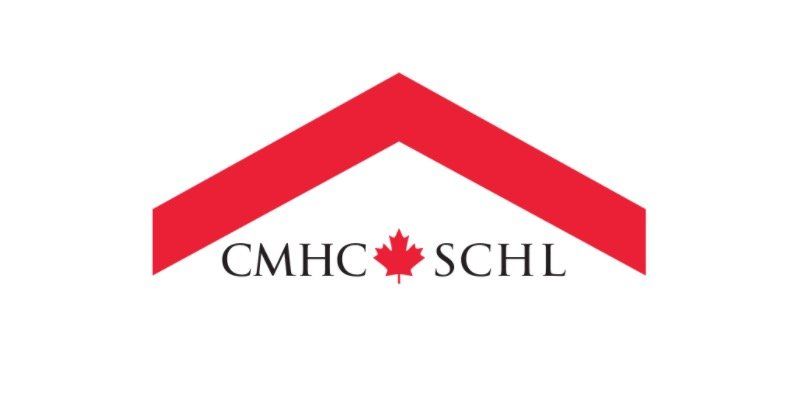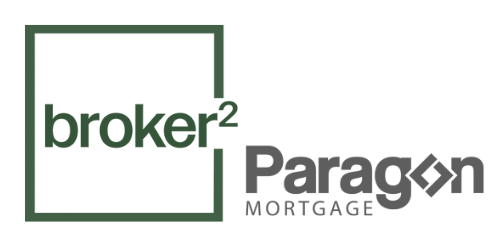CMHC Guidelines Changing July 1st 2020
Sukh Sohal • June 5, 2020

CMHC just shared the following press release. If you have any questions, please don’t hesitate to contact us anytime!
CMHC RELEASE JUNE 4th 2020
The COVID-19 pandemic is affecting all sectors of Canada’s economy, including housing. Job losses, business closures and a drop in immigration are adversely impacting Canada’s housing markets, and CMHC foresees a 9% to 18% decrease in house prices over the next 12 months. In order to protect future home buyers and reduce risk, CMHC is changing its underwriting policies for insured mortgages.
Effective July 1, the following changes will apply for new applications for homeowner transactional and portfolio mortgage insurance:
- Limiting the Gross/Total Debt Servicing (GDS/TDS) ratios to our standard requirements of 35/42;
- Establish minimum credit score of 680 for at least one borrower; and
- Non-traditional sources of down payment that increase indebtedness will no longer be treated as equity for insurance purposes.
To further manage the risk to our insurance business, and ultimately taxpayers, during this uncertain time, we have also suspended refinancing for multi-unit mortgage insurance except when the funds are used for repairs or reinvestment in housing. Consultations have begun on the repositioning of our multi-unit mortgage insurance products.
“COVID-19 has exposed long-standing vulnerabilities in our financial markets, and we must act now to protect the economic futures of Canadians,” said Evan Siddall, CMHC’s President and CEO. “These actions will protect home buyers, reduce government and taxpayer risk and support the stability of housing markets while curtailing excessive demand and unsustainable house price growth.”
These decisions are within CMHC’s authorities under the National Housing Act and are in anticipation of potential house price adjustment. We will continue to monitor market conditions and work with our federal colleagues on potential macro-prudential policy options.
CMHC supports the housing market and financial system stability by providing support for Canadians in housing need, and by offering housing research and advice to all levels of Canadian government, consumers and the housing industry.
RECENT POSTS

Thinking About Selling Your Home? Start With These 3 Key Questions Selling your home is a major move—emotionally, financially, and logistically. Whether you're upsizing, downsizing, relocating, or just ready for a change, there are a few essential questions you should have answers to before you list that "For Sale" sign. 1. How Will I Get My Home Sale-Ready? Before your property hits the market, you’ll want to make sure it puts its best foot forward. That starts with understanding its current market value—and ends with a plan to maximize its appeal. A real estate professional can walk you through what similar homes in your area have sold for and help tailor a prep plan that aligns with current market conditions. Here are some things you might want to consider: Decluttering and removing personal items Minor touch-ups or repairs Fresh paint inside (and maybe outside too) Updated lighting or fixtures Professional staging Landscaping or exterior cleanup High-quality photos and possibly a virtual tour These aren’t must-dos, but smart investments here can often translate to a higher sale price and faster sale. 2. What Will It Actually Cost to Sell? It’s easy to look at the selling price and subtract your mortgage balance—but the real math is more nuanced. Here's a breakdown of the typical costs involved in selling a home: Real estate agent commissions (plus GST/HST) Legal fees Mortgage discharge fees (and possibly a penalty) Utility and property tax adjustments Moving expenses and/or storage costs That mortgage penalty can be especially tricky—it can sometimes be thousands of dollars, depending on your lender and how much time is left in your term. Not sure what it might cost you? I can help you estimate it. 3. What’s My Plan After the Sale? Knowing your next step is just as important as selling your current home. If you're buying again, don’t assume you’ll automatically qualify for a new mortgage just because you’ve had one before. Lending rules change, and so might your financial situation. Before you sell, talk to a mortgage professional to find out what you’re pre-approved for and what options are available. If you're planning to rent or relocate temporarily, think about timelines, storage, and transition costs. Clarity and preparation go a long way. The best way to reduce stress and make confident decisions is to work with professionals you trust—and ask all the questions you need. If you’re thinking about selling and want help mapping out your next steps, I’d be happy to chat anytime. Let’s make a smart plan, together.

Bank of Canada maintains policy rate at 2¼%. FOR IMMEDIATE RELEASE Media Relations Ottawa, Ontario January 28, 2026 The Bank of Canada today held its target for the overnight rate at 2.25%, with the Bank Rate at 2.5% and the deposit rate at 2.20%. The outlook for the global and Canadian economies is little changed relative to the projection in the October Monetary Policy Report (MPR). However, the outlook is vulnerable to unpredictable US trade policies and geopolitical risks. Economic growth in the United States continues to outpace expectations and is projected to remain solid, driven by AI-related investment and consumer spending. Tariffs are pushing up US inflation, although their effect is expected to fade gradually later this year. In the euro area, growth has been supported by activity in service sectors and will get additional support from fiscal policy. China’s GDP growth is expected to slow gradually, as weakening domestic demand offsets strength in exports. Overall, the Bank expects global growth to average about 3% over the projection horizon. Global financial conditions have remained accommodative overall. Recent weakness in the US dollar has pushed the Canadian dollar above 72 cents, roughly where it had been since the October MPR. Oil prices have been fluctuating in response to geopolitical events and, going forward, are assumed to be slightly below the levels in the October report. US trade restrictions and uncertainty continue to disrupt growth in Canada. After a strong third quarter, GDP growth in the fourth quarter likely stalled. Exports continue to be buffeted by US tariffs, while domestic demand appears to be picking up. Employment has risen in recent months. Still, the unemployment rate remains elevated at 6.8% and relatively few businesses say they plan to hire more workers. Economic growth is projected to be modest in the near term as population growth slows and Canada adjusts to US protectionism. In the projection, consumer spending holds up and business investment strengthens gradually, with fiscal policy providing some support. The Bank projects growth of 1.1% in 2026 and 1.5% in 2027, broadly in line with the October projection. A key source of uncertainty is the upcoming review of the Canada-US-Mexico Agreement. CPI inflation picked up in December to 2.4%, boosted by base-year effects linked to last winter’s GST/HST holiday. Excluding the effect of changes in taxes, inflation has been slowing since September. The Bank’s preferred measures of core inflation have eased from 3% in October to around 2½% in December. Inflation was 2.1% in 2025 and the Bank expects inflation to stay close to the 2% target over the projection period, with trade-related cost pressures offset by excess supply. Monetary policy is focused on keeping inflation close to the 2% target while helping the economy through this period of structural adjustment. Governing Council judges the current policy rate remains appropriate, conditional on the economy evolving broadly in line with the outlook we published today. However, uncertainty is heightened and we are monitoring risks closely. If the outlook changes, we are prepared to respond. The Bank is committed to ensuring that Canadians continue to have confidence in price stability through this period of global upheaval. Information note The next scheduled date for announcing the overnight rate target is March 18, 2026. The Bank’s next MPR will be released on April 29, 2026. Read the January 28th, 2026 Monetary Report





